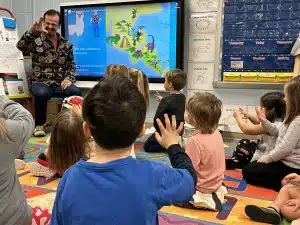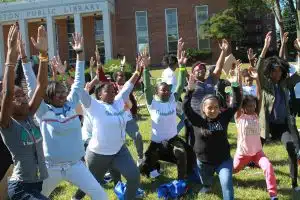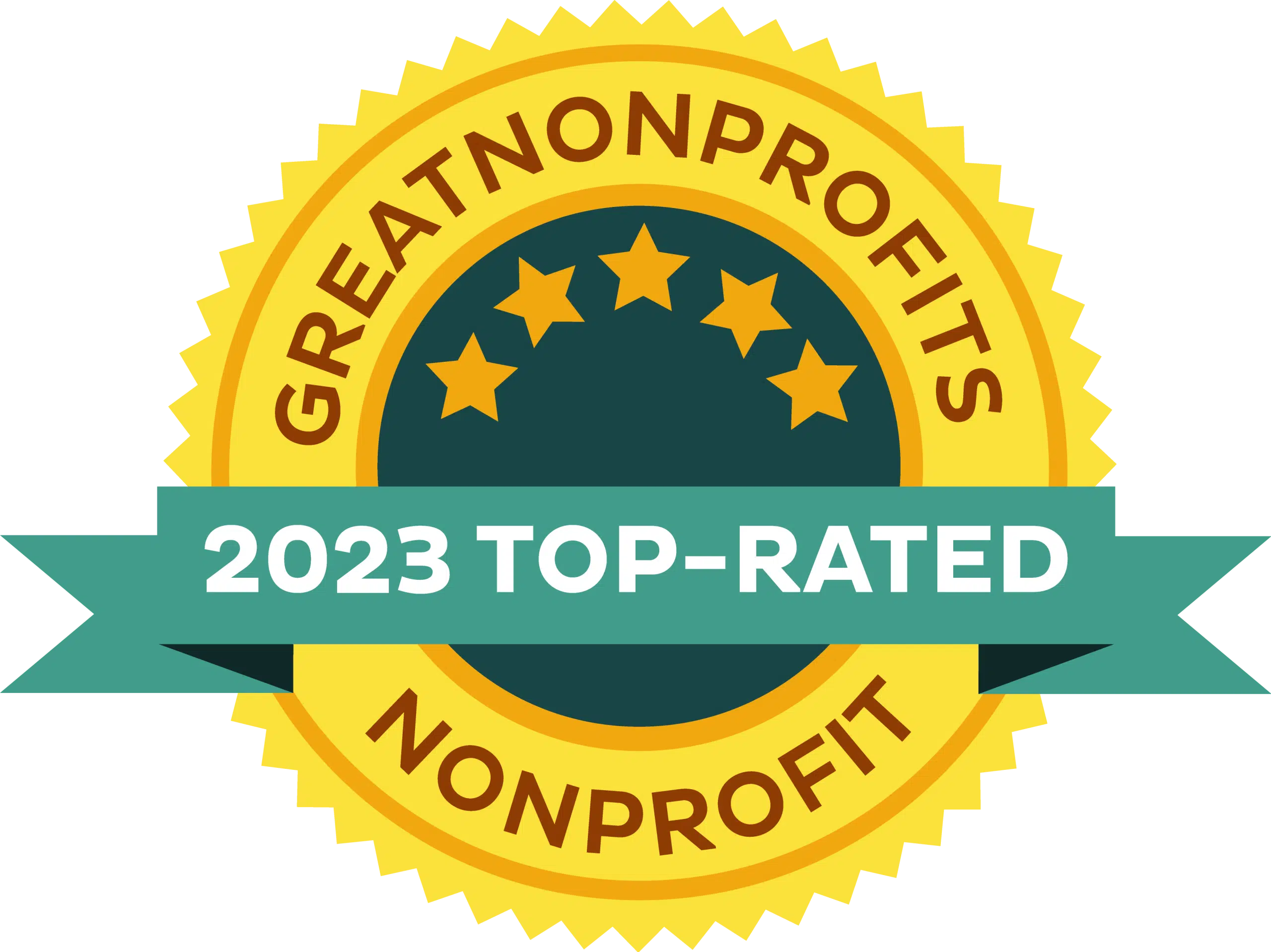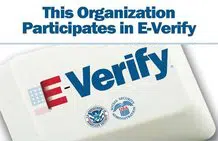In March 2024, Partners of the Americas awarded five subawards to Partners Chapters and organizational members across the Western Hemisphere to support innovative solutions to community-based challenges. Subawards range from USD$3,000 to USD$16,500 and support projects that promote community-centered waste management; enable youth to be STEM researchers; engage youth in leadership development; foster emotional and academic growth of young students; and empower underrepresented voices in Latin America through dance.
The Education and Culture Program is sponsored by the U.S. Department of State’s Bureau of Educational Affairs with funding provided by the U.S. Government and supported in its implementation by Partners of the Americas.
Above: André Avila of ComMotion – Community in Motion (implementers of Biblioteca Madre) facilitates a workshop with youth.
Biblioteca Madre
Implementers: ComMotion – Community in Motion
Collaborators: Partners Campus EAFIT, Fundación Fede
Location: North Carolina, U.S.; Santiago, Chile; Barranquilla, Colombia; Medellin, Colombia; Buenos Aires, Argentina
Theme: Inclusion of Underserved Communities
The Biblioteca Madre project aims to empower underrepresented voices in Latin America, including Indigenous peoples, females, and people with disabilities, by connecting them with a team of artists and educators to create an online multimedia library showcasing their culture and traditions. Over a virtual collaboration spanning several weeks, artists will be trained to produce educational content with a focus on inclusivity, resulting in modules with lesson plans published in an online library. The initiative, targeting at least five youth-serving organizations and over 200 youth in North Carolina and Latin America, seeks to address the lack of representation and perpetuation of stereotypes in Hispanic/Latinx education, fostering cultural appreciation and empathy for historically marginalized communities.
Fortalecimiento Psicosocial y Académico
Psychosocial and Academic Strengthening
Implementer: Fundación Protectores de Vida
Location: Palmira, Colombia
Theme: Access to Education
This project focuses on providing psychosocial, emotional, and academic support to students at Institucion Educativa Departamental Rural de Palmira. The initiative addresses social, family, and school factors that impact students’ academic training and behavior. The program expects to improve students’ emotional well-being, academic performance, and behavior, with potential impact measured through better academic results and enhanced psychosocial states. Fundación Protectores de Vida will implement strategies to motivate self-improvement, providing youth with opportunities, resources, role models and emotional and academic support that will allow them to believe in themselves, develop their skills and talents, and achieve success in the construction of their personal and professional lives.
Above: Community members do sun salutations during the first annual Teen Health Fair with Odo Achievement Center (Implementers of Leadership Cultivation for Youth of Haitian Descent).
Leadership Cultivation for Youth of Haitian Descent
Implementer: Odo Achievement Center
Collaborators: New Jersey-Haiti Chapter
Location: U.S. with virtual engagement in Haiti
Theme: Inclusion of Underserved Communities
Through a series of workshops and an in-person camp, this project aims to empower youth by providing leadership development opportunities, engaging with local leaders, and supporting youth-led projects, to foster civic engagement, awareness of youth rights, and instilling leadership qualities. Odo Achievement Center’s strategic approach involves activities to help beneficiaries understand their leadership style, fostering positive growth and collaboration between schools and communities for quality education. This project will serve as a preventative effort to deter youth from engaging in risky behaviors by providing activities to fill in idle time and instilling qualities that can motivate the desire to have a positive future.
STEM Research Experiences for K-14 Students and K-12 Teachers
Implementers: Scientific Caribbean Foundation, Inc. with the Puerto Rico Chapter
Collaborators: Honduras Chapter and Nicaragua
Location: Puerto Rico (United States), Nicaragua and Honduras
Theme: Access to Education
The STEM Research Experiences for K-14 Students and K-12 Teachers project focuses on engaging economically disadvantaged students in STEM fields (Science, Technology, Engineering, and Mathematics) across Puerto Rico, Nicaragua, and Honduras through research experiences and includes a segment for K-12 teachers to sustain the initiative. The project leverages the success of MIE’s previous impact on over 2,000 K-12 students in Puerto Rico and ongoing efforts in Nicaragua and will disseminate its best practices. It will also engage Fulbright Visiting Scholars and will culminate in a Research Symposium for participants to demonstrate their work.
Yincana Ambiental de los Residuos Sólidos
Solid Waste Environmental Gymkhana
Implementer: Fundación CEDECUR/Cali, Colombia Chapter
Location: Cali, Colombia
Theme: Environmental Protection and Sustainability
Fundación CEDECUR aims to create an environmental Yincana (Gymkhana), focusing on solid waste, based on updated environmental and waste management trends in the park of CIDES in Comuna 18. The foundation will train a group of CIDES leaders to design and disseminate a pedagogical tool, such as a Yincana, to educate the community on environmental care, specifically emphasizing knowledge about solid waste management and promoting changes in practices and habits surrounding waste. A “Yincana” (Gymkhana) is a set of tests of skills that are performed by teams along a course, almost always outdoors and with a recreational and entertainment objective. The initiative reflects a holistic approach, integrating environmental education with community engagement for sustainability.
For queries to the U.S. Department of State, reach out to ECA–Press@state.gov






